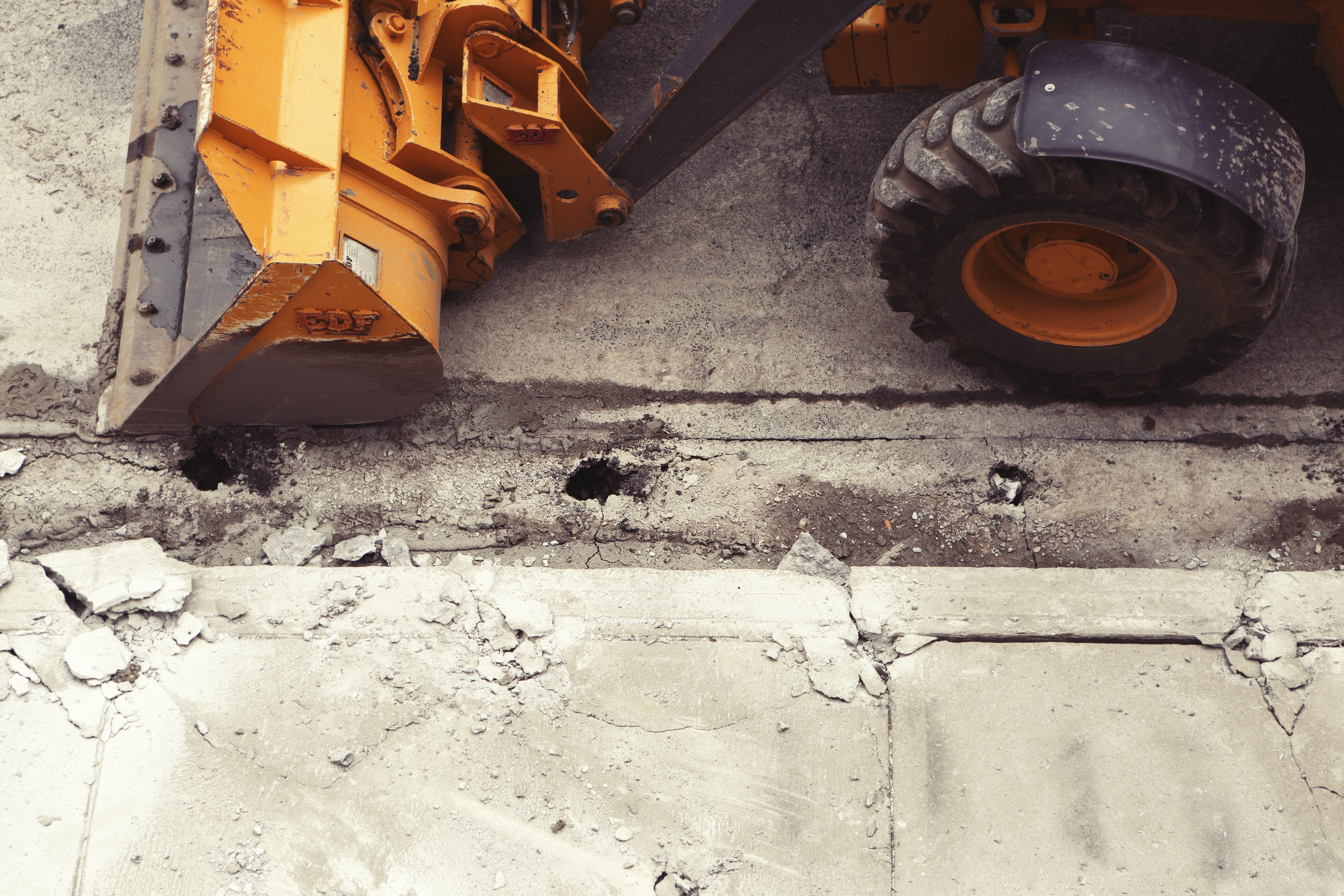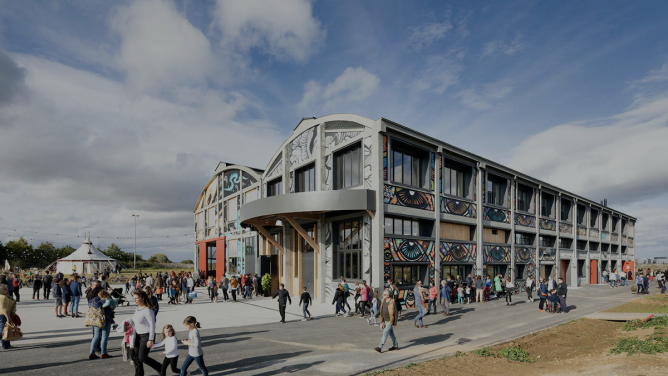
In October, the Fédération Federec published its results for 2017. Having collected 102 million tons of waste, 40.4 million come from the construction industry, the numbers are up by 2% compared to 2016, and revenues have reached 1.78 billion Euros. While the numbers are encouraging, they do nothing to appease the industry as it weighs in on the government’s FREC, or Circular Economy Roadmap (Feuille de Route Économie Circulaire). In fact, the roadmap has made provisions to set up an expanded manufacturers’ sustainability authority that would set out strict conditions for recycling waste. Construction players are paving the way for a future where recycling waste will no longer be optional.
Moving towards circular models
Today, 50% of all waste from the construction industry is either recycled or repurposed. In 2008, the Waste Framework Directive sets an objective of 70% for 2020, with major implications for the flow of materials. An Italian NGO, Legambiente, estimates that reaching this objective would drastically reduce the amount of rock extractions, enough to close 100 Italian quarries for a year. At the same time, this estimation also includes a significant market for construction waste. As such Le Moniteur values the potential resale of waste in France at approximately 500 million Euros.
The main challenge today is how to structure the sustainability authority, as sustainability is rarely prioritized in high demand economies. As prominent figures in this fast changing sector, market places are quickly emerging to meet offer and demand. Cycle Up, Backacia or Raedificare are all trying to establish economic models that will allow them to cut out the leading part in this young market. Waste Marketplace, a digital solution for the management of construction site’s waste created by Jérôme de Tomasi, a VINCI intrapreneur supported by Leonard, developed a similar solution based on an algorithm that selects the best destination for the waste in order to optimize their recycling in a cost effective way. The project just received the special price “Coup de coeur des étudiants” at the Trajectoires BTP trophys, organized by the media Le Moniteur to reward the career of actors in the construction industry. Several obstacles stand in the path of these marketplaces: logistics (delivering materials), quality (official inspection and approval) and economic factors (competition from new products).
Innovating in waste treatment processes
An entire supply chain of innovation has been activated to meet the new needs for recycling building waste. More and more software solutions dedicated to recycling waste have seen the light of day, such as AMCS or Gensuite, that track and manage the flow of waste. Mainstreaming BIM (Building Information Modeling) should also introduce the notion of managing waste management as early as the building design process. “We are exploring how to integrate recyclability into buildings as early on as the design process so that in 30, 40 or 50 years their waste can be managed easily”, Erwan Le Meur, President of the Federec BTP explained to Batiactu. Connected objects, ones that are directly linked to the new software market, are also creating new opportunities for innovation. Propeller has developed a new technology that associates a software platform and drones to facilitate and speed up the process for inventorying waste.
Innovation is also on the move in the more traditional materials and machines sectors. The national collaborative project RECYBETON is betting on a process that uses recycled concrete to produce… concrete. The resulting product fully respects strength, durability and longevity requirements. Machines such as grinders, pelletizers and screeners are becoming better and more present on construction sites. The Ammann Group’s RSS 120-M assembles all of these capabilities in one machine that also includes an overband to separate iron from other waste materials. Eurovia, in collaboration with VINCI Autoroutes, also innovated with concrete by constructing the first “100% recycled road” in the world. This one-kilometer long section of the A10 highway between Pons and Saint-Aubin (located in the French department called Gironde) is the result of two years of R&D, in partnership with the Marini-Ermont company, specialized in the recycling of road surfacing. This recycled road allows a reduction of up to 50% of the carbon footprint of construction sites by limiting the logistic needs and avoiding the extraction of natural resources.
Emerging markets, big consumers of construction materials, are making good use of these inventions. In China, the number of companies using these technologies to treat rampant waste continues to grow. “As the price of raw materials is constantly rising our recycled products are becoming increasingly competitive. We are literally turning trash into cash”, explains Yang Yingjian, Director-General of Jiangsu LVHE Environmental Technology Company.


